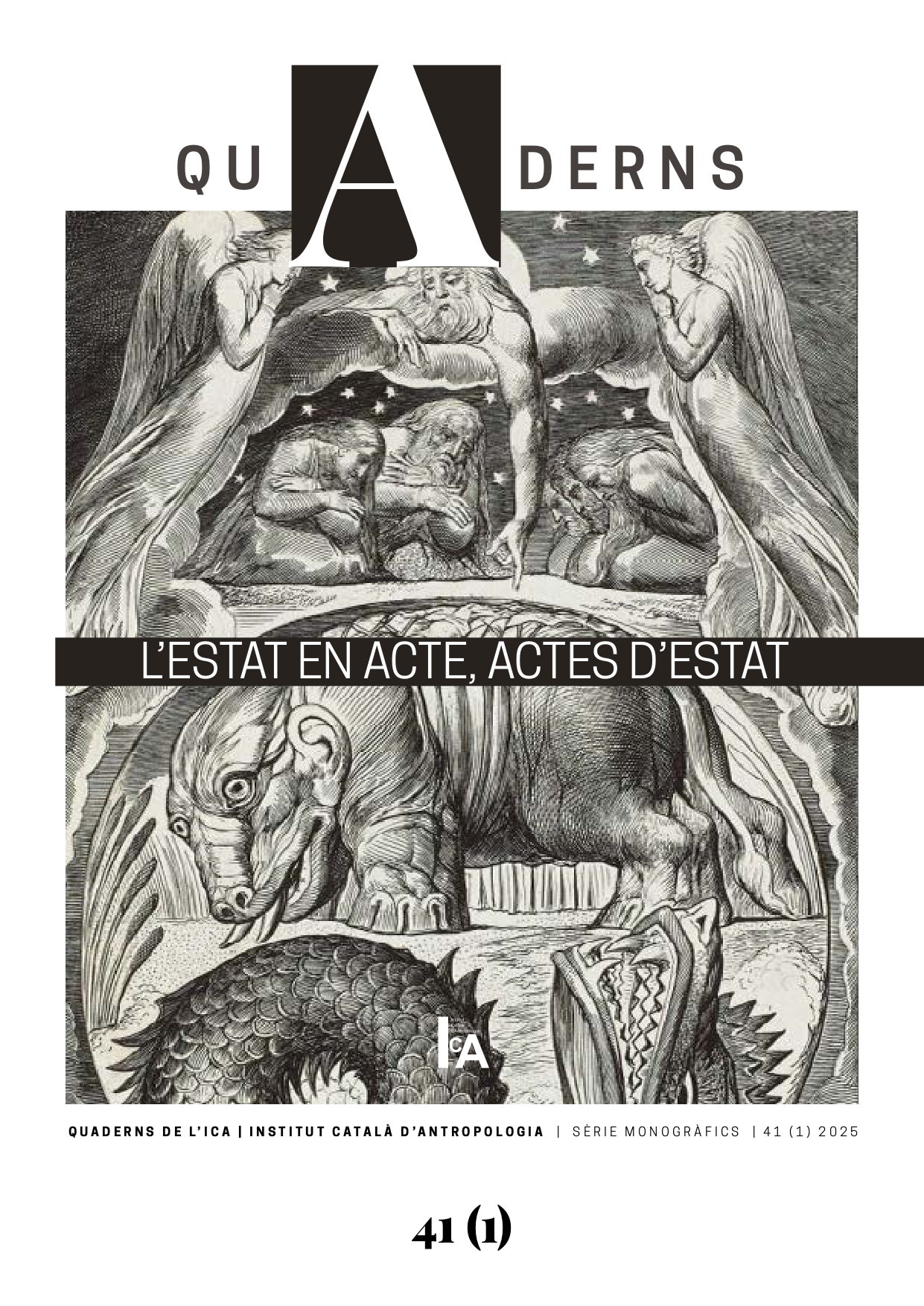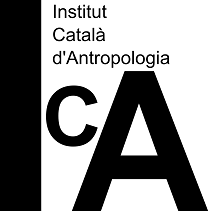Visualizing the “stateless” state: New anarcho-capitalist territorial imaginaries in the movement for private jurisdictions
DOI:
https://doi.org/10.56247/qua.525Keywords:
Private cities, libertarian exit, special jurisdiction, statecraft, territory, representationAbstract
This article presents research on emerging global techno-libertarian networks for the establishment of venture-capital, crypto, and Web3-based jurisdictions and the new territorial and state projects they produce, including free private cities, charter cities, seasteads, and network states. Rooted in a self-professed anarcho-capitalist ideology, many of these projects paradoxically claim to eliminate “the state” in favor of decentralized and self-organized societies, while simultaneously proposing or producing different forms of centralized power. The article provides a critical analysis of techno-libertarian statecraft by examining the visual and discursive representations used to convey and obscure ideas of state, governance, and power. To do so, I look primarily at the use of metaphor (Semino 2008) and spectacle (Tsing, 2005) in techno-libertarian representations of territory. Finally, the article uses the Próspera Zone for Economic Development and Employment (ZEDE) located on the Honduran island of Roatán and in the Satuyé Port, La Ceiba as a case study in private statecraft. In addition to analyzing the structures created by Honduras Próspera Inc to govern the highly autonomous jurisdiction and the longevity biotech “network state” that it hosts, the article explores the visual representations that accompany actual structures of governance and state power.
Downloads
Global Statistics ℹ️
|
369
Views
|
472
Downloads
|
|
841
Total
|
|
References
Abrams, P. (1988). Notes on the difficulty of studying the state. Journal of Historical Sociology, 1(1), 58–89. https://doi.org/10.1111/j.1467-6443.1988.tb00004.x DOI: https://doi.org/10.1111/j.1467-6443.1988.tb00004.x
Anderson, B. (1983). Imagined communities: Reflections on the origin and spread of nationalism. Verso.
Bach, J. (2011). Modernity and the urban imagination in economic zones. Theory, Culture & Society, 28(5), 98–122. https://doi.org/10.1177/0263276411411495 DOI: https://doi.org/10.1177/0263276411411495
Bakonyi, J. (2022). Modular Sovereignty and Infrastructural Power: The Elusive Materiality of International Statebuilding. Security Dialogue, 53(3), 256-278. https://doi.org/10.1177/09670106211051943 DOI: https://doi.org/10.1177/09670106211051943
Bell, T. W. (2017). Your next government?: From the nation state to stateless nations. Cambridge University Press. DOI: https://doi.org/10.1017/9781316676387
Borras, S. M., Hall, R., Scoones, I., White, B. & Wolford, W. (2011). Towards a better understanding of global land grabbing: An editorial introduction. Journal of Peasant Studies, 38(2), 209–216. https://doi.org/10.1080/03066150.2011.559005 DOI: https://doi.org/10.1080/03066150.2011.559005
Brash, J. (2006). Anthropologies of urbanization: New spatial politics and imaginaries. Urban Anthropology and Studies of Cultural Systems and World Economic Development, 35(4), 341–353. https://www.jstor.org/stable/40553527
Brenner, N. (2004). New state spaces: Urban governance and the rescaling of statehood. Oxford University Press.
Craib, R. B. (2022). Adventure capitalism: A history of libertarian exit, from the era of decolonization to the digital age. PM Press.
Criterio.hn. (2023, August 24). Arcah denuncia que Zede Próspera pretende crear el concepto de “ciudadanía prohibida.” Criterio.hn. https://criterio.hn/arcah-denuncia-que-zede-prospera-pretende-crear-el-concepto-de-ciudadania-prohibida/
Datta, A. (2015). New urban utopias of postcolonial India. Dialogues in Human Geography, 5(1), 3–22. https://doi.org/10.1177/2043820614565748 DOI: https://doi.org/10.1177/2043820614565748
Easterling, K. (2014). Extrastatecraft: The power of infrastructure space. Verso.
Ferguson, J. (1990). The anti-politics machine: “Development,” depoliticization, and bureaucratic power in Lesotho. Cambridge University Press.
Ferguson, J., & Gupta, A. (2002). Spatializing states: Toward an ethnography of neoliberal governmentality. American Ethnologist, 29(4), 981–1002. https://doi.org/10.1525/ae.2002.29.4.981 DOI: https://doi.org/10.1525/ae.2002.29.4.981
Friedman, Patri (2012, April 26). Seasteading- Building on the Platform of the Oceans: Patri Friedman at TEDxSF [Video]. Youtube. https://www.youtube.com/watch?v=maLAMwhTjHk
Geglia, B., & Nuila Herrmannsdörfer, A. (2021, February 15). A private government in Honduras moves forward. North American Congress on Latin America. https://nacla.org/news/2021/02/12/private-government-honduras-zede-prospera
Harvey, D. (1989). From managerialism to entrepreneurialism: The transformation in urban governance in late capitalism. Geografiska Annaler: Series B, Human Geography, 71(1), 3–17. https://doi.org/10.1080/04353684.1989.11879583 DOI: https://doi.org/10.1080/04353684.1989.11879583
Haskins, C. (2024, September 23). A mysterious school for the network state crowd is now in session. Wired. https://www.wired.com/story/network-school-balaji-srinivasan/
Jazeel, T. (2015). Utopian urbanism and representational city-ness. Dialogues in Human Geography, 5(1), 27–30. https://doi.org/10.1177/2043820614565866 DOI: https://doi.org/10.1177/2043820614565866
Kauffman, S. A. (1995). At home in the universe: The search for laws of self-organization and complexity. Oxford University Press.
Levien, M. (2011). Special economic zones and accumulation by dispossession in India. Journal of Agrarian Change, 11 (4), 454–83. https://doi.org/10.1111/j.1471-0366.2011.00329.x DOI: https://doi.org/10.1111/j.1471-0366.2011.00329.x
Levien, M. (2012). The land question: Special economic zones and the political economy of dispossession in India. The Journal of Peasant Studies 39 (3-4), 933–69. https://doi.org/10.1080/03066150.2012.656268 DOI: https://doi.org/10.1080/03066150.2012.656268
Li, T. M. (2007). The will to improve: Governmentality, development, and the practice of politics. Duke University Press. https://doi.org/10.1215/9780822390411 DOI: https://doi.org/10.1515/9780822389781
Lynch, C. R. (2017). “Vote with your feet”: Neoliberalism, the democratic nation-state, and utopian enclave libertarianism. Political Geography, 59, 82–91. https://doi.org/10.1016/j.polgeo.2017.03.005 DOI: https://doi.org/10.1016/j.polgeo.2017.03.005
Lynch, C. R., & MuñozViso, Á. (2023). Blockchain urbanism: Evolving geographies of libertarian exit and technopolitical failure. Progress in Human Geography, 48(1), 66–84. https://doi.org/10.1177/03091325231219699 DOI: https://doi.org/10.1177/03091325231219699
MacDonald, T. J. (2019). The political economy of non-territorial exit. Edward Elgar Publishing. https://doi.org/10.4337/9781788979375 DOI: https://doi.org/10.4337/9781788979382
Majone, G. (1997). From the positive to the regulatory state: Causes and consequences of changes in the mode of governance. Journal of Public Policy, 17(2), 139–167. https://doi.org/10.1017/S0143814X00003524 DOI: https://doi.org/10.1017/S0143814X00003524
Nuila Herrmannsdörfer, A. (2021, May 20). Las ZEDE en los tribunales de Viena. Contra Corriente. https://contracorriente.red/2021/05/20/las-zede-en-los-tribunales-de-viena/
Ong, A. (2006). Neoliberalism as exception: Mutations in citizenship and sovereignty. Duke University Press. DOI: https://doi.org/10.1515/9780822387879
Ong, A. (2007). Neoliberalism as a mobile technology. Transactions of the Institute of British Geographers, 32(1), 3–8. https://doi.org/10.1111/j.1475-5661.2007.00234.x DOI: https://doi.org/10.1111/j.1475-5661.2007.00234.x
Praxis Nation (2024). Declaration speech. Retrieved May 30, 2025 from https://www.praxisnation.com/news/declaration-speech
Próspera. (n.d.)a. Regulatory environment. In Próspera Help Center. Retrieved June 11, 2025, from https://intercom.help/prospera-c3520d800849/en/articles/8258613-regulatory-environment
Próspera. (n.d.)b. Doing business in Próspera [PDF]. Retrieved June 11, 2025, from https://info.prospera.hn/downloads/doing_business_in_prospera.pdf
Próspera. (2025, January 21). Próspera announces strategic investment by Coinbase Ventures and other investors to increase economic freedom worldwide. Próspera News. https://www.prospera.co/news/prospera-announces-strategic-investment-by-coinbase-ventures-and-other-investors-to-increase-economic-freedom-worldwide
Radcliffe, S.A. (2001). Imagining the State as a Space: Territoriality and the Formation of the State in Ecuador. In T. Blom Hansen & F. Stepputat (Eds.), States of Imagination: Ethnographic Explorations of the Postcolonial State. Duke University Press. https://doi.org/10.1215/9780822381273 DOI: https://doi.org/10.2307/j.ctv11smxxj.8
RMITV. (2024, October 15). Alcalde Ron McNab: Tema ZEDES - Próspera - No reconozco a Próspera como otra nación [Video]. Facebook. Retrieved April 15, 2025 from https://www.facebook.com/aracelysolorzano21/videos/1063017509164423/
Roatan Tourism Bureau. (2022, April 22). What does it mean to declare ZEDEs unconstitutional in Honduras? https://roatantourismbureau.com/community-updates/what-does-it-mean-to-declare-zedes-unconstitutional-in-honduras
Rzepecki, R., Cojocaru, A. I., & Crittenden, M. (2023). Spectra whitepaper: Building a sustainable, livable, and affordable city for 1M+ people through multilayer blockchain cooperatives and extended reality experimentation. Retrieved May 30, 2025 from https://www.spectracities.com/papers/
Scott, J. C. (1998). Seeing like a state: How certain schemes to improve the human condition have failed. Yale University Press.
Semino, E. (2008). Metaphor in discourse. Cambridge University Press. Simpson, I (2021) Performing freedom: An examination of Ocean Builders’ successful failure in Thailand. Transformations 35: 65-87. Simpson, I. & Sheller, M. (2022). Islands as interstitial encrypted geographies: Making (and failing) cryptosecessionist exits. Political Geography 99: 102744. https://doi.org/10.1016/j.polgeo.2022.102744 DOI: https://doi.org/10.1016/j.polgeo.2022.102744
Slobodian, Q. (2023). Crack-up capitalism: Market radicals and the dream of a world without democracy. Metropolitan Books.
Smith, H. & Burrows, R. (2021). Software, sovereignty and the post-neoliberal politics of exit. Theory, Culture & Society 38(6): 143-166. https://doi.org/10.1177/0263276421999439 DOI: https://doi.org/10.1177/0263276421999439
Srinivasan, B. (2022). The Network State: How to Start a New Country. https://thenetworkstate.com
Steinberg, P. E., Nyman, E., & Caraccioli, M. J. (2012). Atlas swam: Freedom, capital, and floating sovereignties in the seasteading vision. Antipode, 44(4), 1532–1550. https://doi.org/10.1111/j.1467-8330.2011.00963.x
Thelen, T., Vetters, L., & von Benda-Beckmann, K. (2017) Stategraphy: Toward a Relational Anthropology of the State. Oxford: Berghan. DOI: https://doi.org/10.2307/j.ctvw048nm
Tsing, A. L. (2005). Friction: An ethnography of global connection. Princeton University Press. DOI: https://doi.org/10.1515/9780691263526
Weber, M. (1948). Politics as a Vocation. In H. Gerth & C.W. Mills (Eds.), From Max Weber – Essays in Sociology (pp. 77-128). Routledge. https://doi.org/10.1111/j.1467-8330.2011.00963.x DOI: https://doi.org/10.1111/j.1467-8330.2011.00963.x
Downloads
Published
How to Cite
Issue
Section
License
Copyright (c) 2025 Quaderns de l'Institut Català d'Antropologia

This work is licensed under a Creative Commons Attribution-NonCommercial-ShareAlike 4.0 International License.
Distributed under the terms of the Creative Commons Attribution 4.0 International Use and Distribution License (CC BY-NC-SA 4.0)
Funding data
-
Social Science Research Council
Grant numbers Melon International Dissertation Fellowship




